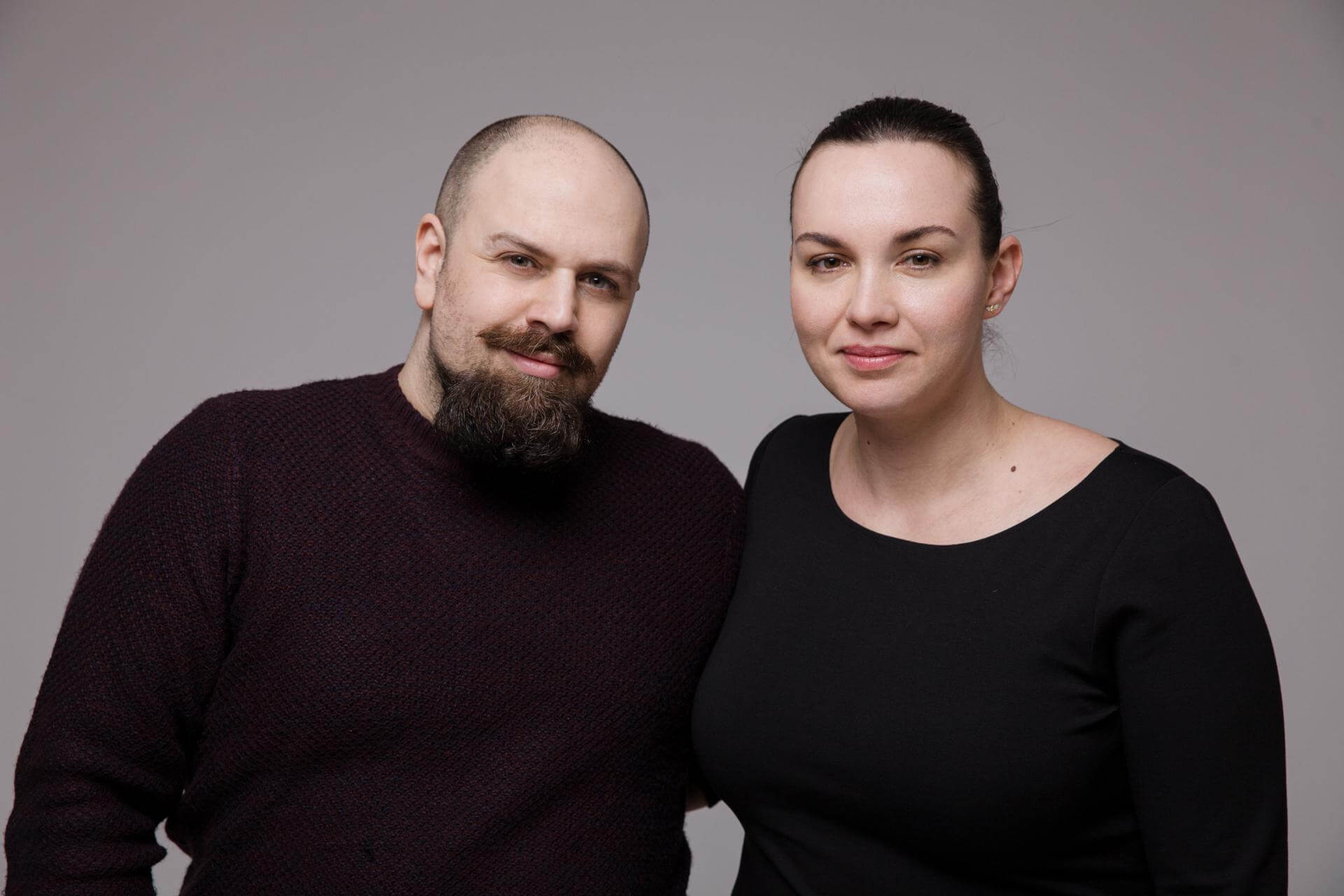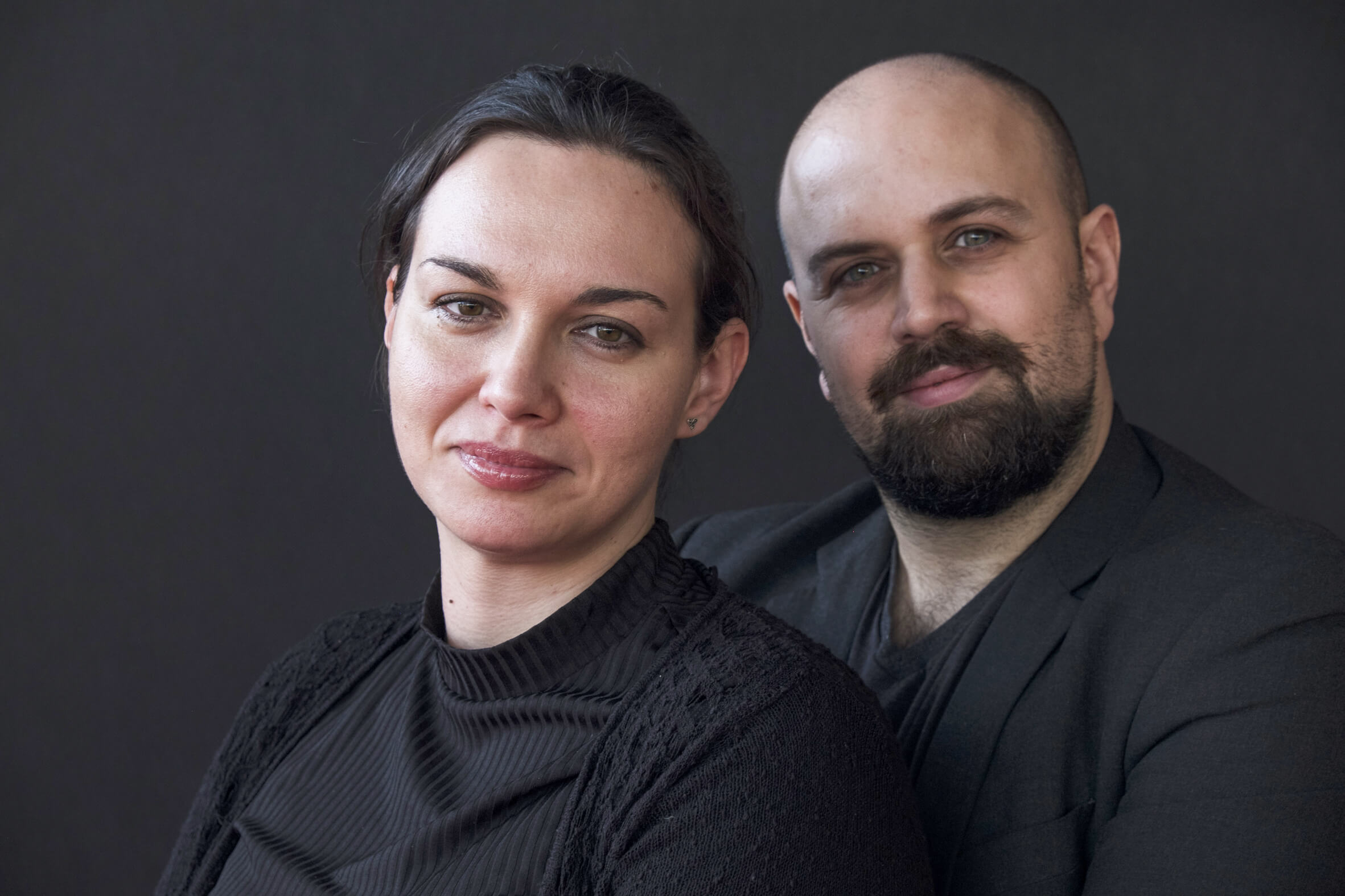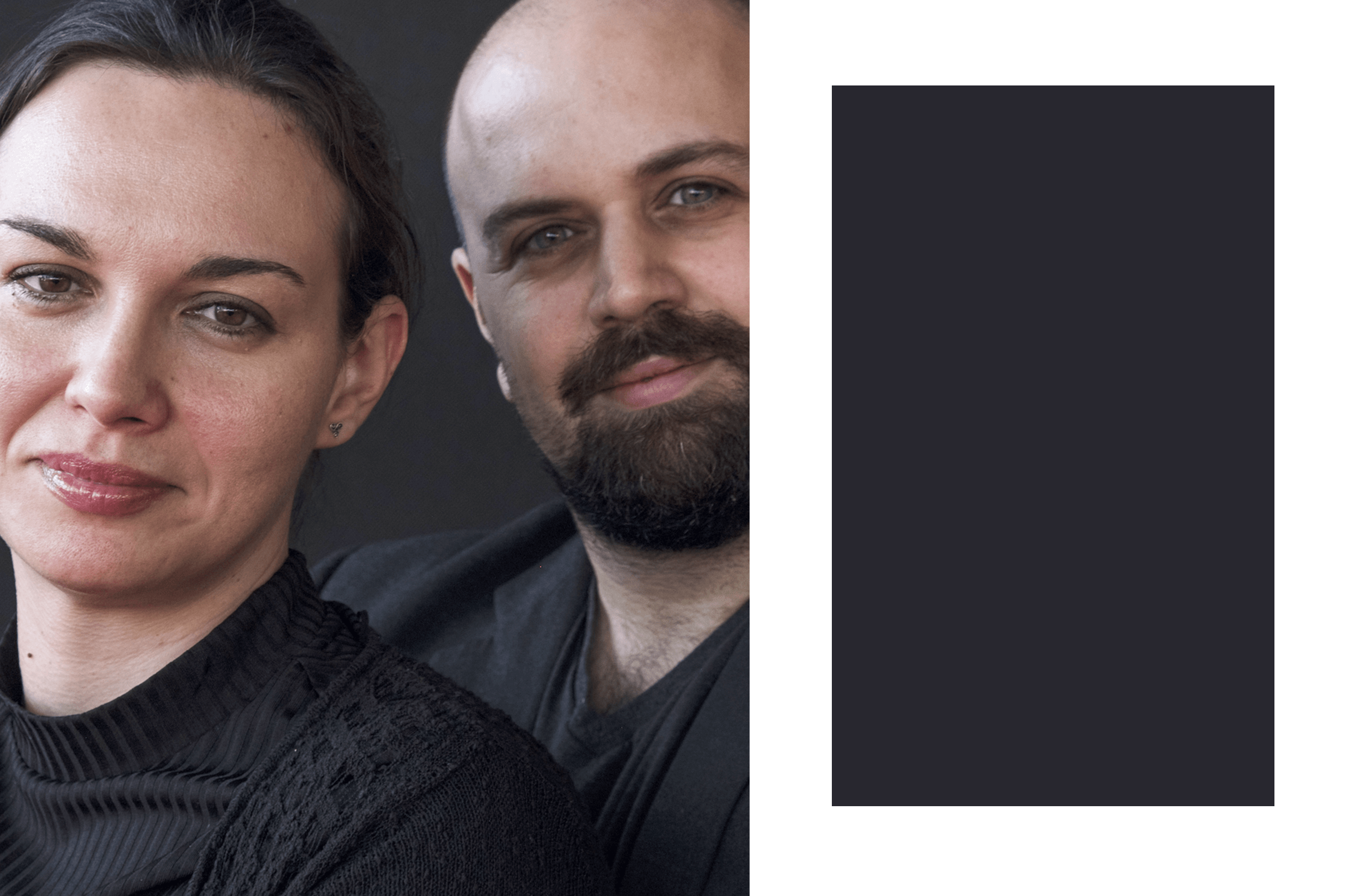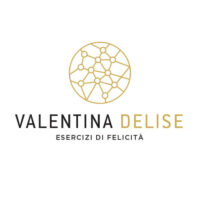Tlon: a unique reality in Italy and in the world, with a very important task, that of making philosophy accessible and reachable, present but never incumbent in our everyday life. “Factory, school of philosophy, a gatherer of communities, publishing house and theater library”, the founders of this academy of imagination are Maura Gangitano and Andrea Colamedici, two great thinkers and brilliant human beings whom we met on the occasion of Milan’s FeST.
What better occasion than the festival of TV series to talk about the key role of philosophical approach in our everyday fruitions? To take life with lightheartedness but also with seriousness.
Nature, social media, fanatism, discoveries and sharing of reflections to learn together to “dignify life” and better face the reality of the senselessness of our existence: united in the passion and unorthodoxy, not to ever become “Dolores Umbridges”.
“Philosophical education for personal growth”: a motto, Tlon’s motto, which is both a premise and a promise of possibilities. In which way have you personally grown alongside your educational reality over time?
M: In our case, it’s been a consciousness journey with implications also in our personal life and relationship: so many things we’ve written and talked about come from our own conversations and understandings, so in this sense, it really goes hand in hand. Then, there’s also a part related to readings, and reflections that we share, so there’s a strong connection and a total overlap.
With Tlon, you prove that every day it is possible to find philosophical food for thought for us to stop and meditate and try and understand what surrounds us. What I find fascinating about your job is the fact that you fuel discussions that are not only based on empirical things or emotions but also on more tangible, current, and at times unpredictable things. What’s the thought at the base of this “selection”?
N: The idea that there’s nothing unworthy of attention and that curiosity is etymologically the ability to take care of things. So, we want to encourage people’s curiosity, pushing them to think that everything is worthy of attention. This makes us “dignify” life, recognizing that there’s not a moment in which you feel like you’re detached from the rest. For example, here next to us there’s this plant: the first thing I did was try and understand if it was real or fake, try and understand what kind of plant it was, and even though it was fake, what kind of story did it tell. This makes us better deal with the senselessness of existence, which today is clearer than ever. The institutions and values over the course of history have been conceptual buildings that helped us sustain the weight of life. Today, everything has fallen apart, but the marvel stayed, the beauty of things stayed, the problem is that it’s hard to sustain and we have to invent new stories and it’s a nice opportunity because we have the possibility to tell personal stories in which we can face all of this. So, ours is an invitation to marvel, really as an invitation to the discovery and disposition to travel, to meet and relate to things and people.
Philosophical approach and social media: perhaps a winning binomen, maybe full of pitfalls. How do you love your relationship with this means of expression and communication?
M: We often use social media to criticize them. Let’s put it like this: social media are a digital place where people connect with each other, so, it’s important to bring philosophy there as well because we believe that philosophy needs to be brought to people. However, they’re also a place of great toxicity. In our case, what we do is also try and have more communication channels, so social media are a way for us to talk about certain things and provoke reflection. Then, there are books, live meetings, and editorial activity, that is our work as editors for other people, and all of these things give a different response because they allow a different connection. Social media can be propaedeutic to asking ourselves questions, observing things in a certain way, and also the first contact, so you can reach many more people, and then many of these will want to dig deeper. Anyway, under this aspect, they keep being useful because they allow you to see that things are not exclusively the way you see them. So, for us over the years they’ve been an opportunity to discover different points of view compared to ours, with which, instead, reading books and participating in the usual cultural events, we wouldn’t have come across.
So, social media are a place where sometimes you feel overwhelmed by chaos, but with its chaos, they allow us to encounter people and ideas that otherwise we wouldn’t encounter.

What do you expect that we, the audience, bring home with us after your panel here at FeST?
N: The thing I’d care about the most is the idea to look at TV series as an instrument to create a personal mythology through which face with courage and curiosity our existence. Because this is what TV series can do: if they only were entertainment products, it would be very sad, it would be like doing crosswords on the Gospel. Deep down, in TV shows, there’s a whole side of personal growth, development, and analysis, and it’s not only about production in itself, but also in the way in which we relate to production, in our disposition to receive a narration, with the idea that “what I’m about to see could change my life”. Looking at cultural productions in this light allows one to experience epiphanies even with “Friends” or “Gilmore Girls”.
Tlon is a philosophy-centered reality, a publishing house, a theater library, and much more. It’s an innovative and different cultural pole, in continuous movement, just like the world, just like us, humans. What other change would you want to help make, in your own way?
N: The perception of the ecological issue. I think that that’s one of the main matters we’d want to help generate understanding: the approach of an apocalypse, the negative deepness of our ecological environmental print, and the understanding of how vital degrowth is, both externally and internally. I think that this is one of the cornerstones toward which we’re moving with a part of our publishing house’s books, toward which we necessarily need to go because otherwise, we would risk ordering the series on the Titanic and in the meantime sink down.
What about TV series, instead? How do you usually choose what to watch?
M: I only watch TV series that I’m pretty sure I will love, so I’m very selective. Usually, they’re set in fantasy worlds, I watch those and documentaries, so I either watch reconstructions of real-life stories or totally made-up stories. I usually look for something that surprises me, that’s different from the things I’ve already seen; so, if I have to watch something that I’ve already seen, I watch I show that I know well, maybe a TV series from the 2000s. I only care that there are existential questions between the lines, this is what I look for.
N: Instead, rewatching things makes me feel physical discomfort, I can’t stand the idea of watching the same thing twice, or even reading a book twice, I can’t stand the idea of re-reading something, even though when I do it, I realize that I’m a different person and so I’m reading a different thing, but in order to get to here, I need to get beyond my instinctive barrier. The thing is you have the feeling you’re losing the rest of the knowledge there is out there, but sometimes from a re-watch of “Lost” you can learn much more than from watching the just-released new season of “Stranger Things”.
Your latest binge-watch.
N: We did it together, it was “Woodstock”.
M: Also “Sampa” and “Only Murders in the Building”. Actually, when I decide to watch a show, I watch the episode in a short span of time, but never all together.
In one of your posts, you spoke about taking care of yourselves, in the sense of the perpetual act of acceptance of our personhood. For you, instead, what does it mean to feel comfortable in your own skin?
M: To me, it means not to watch over it, that is not trying to control it, which is something that today, instead, we’re constantly forced to do.
N: Yes, it means not to notice it, I feel comfortable in my own skin when I realize I don’t have skin, and when I feel like I can forget about myself. I remember myself when I forget about myself and when I don’t feel the anxiety to prove something, to say the right thing. Like right now, I got distracted for a while and it felt good: what matters is to get distracted from ourselves, otherwise, we’d live with a constant obsession with ourselves which makes us waste an incredible amount of energy.
On the other hand, feeling comfortable in our own skin means getting lost, and meeting someone who makes us shift our attention target from us towards them.

What was the latest thing you found out about yourselves?
N: That I love skirts and dresses. I bought a “men’s” nightgown and I feel so good in it, it’s an incredible feeling, your legs are fresh. I discovered that I have no problem wearing it, I love it and I do it.
What about you? Bags?
M: Yes, that’s a passion that’s evolved and refined. Then, I really like reading history, which sounds so Ravenclaw [laughs]. I’ve also discovered that I’m a lark, in the sense that for many years I’ve believed that I like to wake up late, but actually my biorhythms are very different than what I thought: I like to wake up early, do things early, and I also discovered that not everyone works this way, so when at 8 am I’m full of energy and feel like doing lots of things, other people maybe want to sleep…
N: Where “other people” means me [laughs].
The book on your nightstand.
N: “Capitalist Realism” by Mark Fisher.
M: “The Dawn of Everything” by Graeber David, a book about the history of humanity.
They always say that life is to be “taken philosophically”: what does it mean?
M: We’ve taken ownership of this commonplace because life should actually be taken philosophically, with lightheartedness but seriously, at the same time. What’s difficult is that “at the same time” part, trying not to identify like we usually do with all the things that happen to us, but at the same time taking them seriously and also be responsible with what’s happening, like environmentally-wise, towards what we’ve been causing over the past decades.
During the panel, you discussed nature and the relationship between humans and nature, nature as “what returns to the world”. What returns you to the world and what will return us all to the world after this difficult time we’re living in?
N: The rightest but also most obvious answer to this is: love. You can say anything you want, but in the end it’s the ability to feel a deep relationship with someone up to the point where you think that life is worth living: this is what makes us decide, in the most difficult times, whether to stay alive or not. I don’t think there’s much else, I think it depends on our ability to establish fruitful, fertile relationship networks.
We’ve also talked about fandoms, their extremism, but also the sense of community that fandoms give back to their members. What’s your take on fanatism and how dangerous can imagination be?
M: It’s very important for the shaping of your personal identity and imagery, and also to feel a sense of togetherness with people that are similar to us because ours is a society in which we often feel lonely and abandoned, and it’s hard to recognize ourselves. Fandoms give you an identity instead. However, the risk is that your journey gets deranged and becomes a bubble where who you are doesn’t matter anymore and all that’s related to the fandom becomes a dogma, so something you can’t doubt. For this reason, the problem becomes the lack of doubt, the cultivation of doubt, and also the cultivation of the perspective toward that kind of story, and who wrote it, or in the case of musicians, or singers, the fact that there cannot be any perfect human being living up to your expectations because they’ll definitely betray you. So, the problem with fandoms is that it often has a hard time dealing with betrayals, the reason for which many people then decide to quit them at some point. However, something you can’t abandon is imagery.
N: In my opinion, one of the most characteristic and important things in fandoms and the world of fandoms is the variations on a theme, like on Wattpad, the act of imagining alternative endings, and storyline sequels. I think that’s one of the keys with which to find a golden vein in fandoms because otherwise, you would risk becoming the reign of fanatics. Our daughter, for example, reads and writes so much fanfiction: reading and writing fanfiction inside the world of fandoms is a very good way because it lightens up the love for the series but it also allows us to take ownership of it and understand that being bigots makes no sense; she, for example, is now reading “Percy Jackson” and the fact that Nico and Percy in a fanfiction have an affair is something that keeps her passion for that world alive and, at the same time, makes her less orthodox, less bigot, like when she imagines what the love story between Harry and Hermione would have been whether she hadn’t married Ron and Harry hadn’t married Ginny Wasley;
this is what makes us say “I love Harry Potter and I won’t become Dolores Umbridge”.
Second picture by Rino Bianchi.
Thanks to FeST.


![Interview with Dr. George Gaitanos [Chief Operating and Scientific Officer of Chenot]: Giving meaning to time](https://www.theitalianreve.com/wp-content/uploads/2025/04/LAlbereta-dalla-Vigna-Leone-300x200.jpg)

